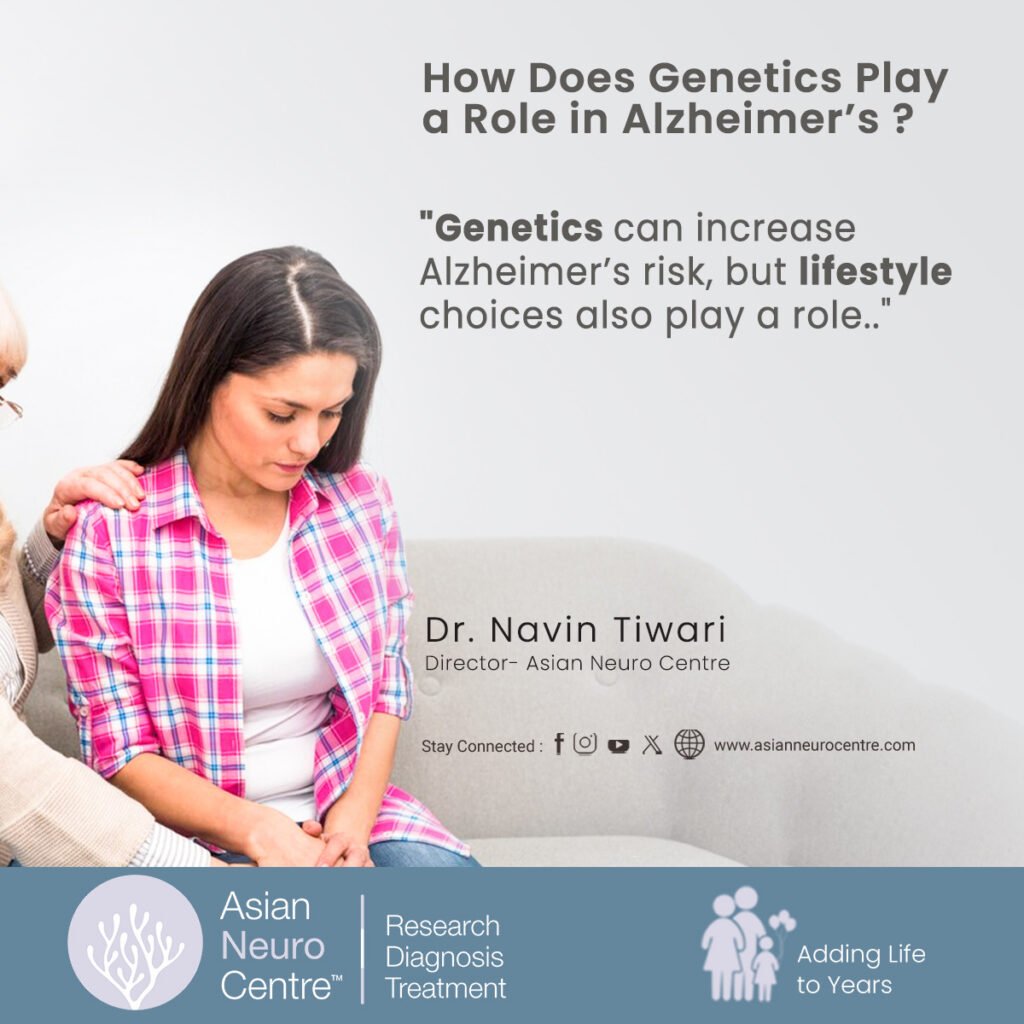- Have any questions?
- 911 12345 29
- info@asianneurocentre.com
How Does Genetics Play Their Part in Alzheimer’s?
How does Alzheimer’s Affect Memory?
October 21, 2024Is Lumbar Spondylosis Permanent Disease?
November 4, 2024Alzheimer’s is a multifactorial disorder that kills memory, impairs cognitive functions and alters behaviors.
Now, because it is multifactorial, multiple factors act together to cause Alzheimer’s; however, one of the main reasons contributing to its development is genetics.
It is also a determining factor for the susceptibility of a person towards developing Alzheimer’s.
Consequently, research into the risk of Alzheimer’s disease identified genes that influence susceptibility, at least in those families where the disease has been on record.

The Role of Genes in Alzheimer’s Disease
Two types of genes play a role in the development of the Alzheimer’s condition – risk genes and deterministic genes. The most commonly known risk gene is APOE-e4.
The presence of this variant sets a higher chance for the development of Alzheimer’s, but it does not mean that they definitely will. It is more prevalent among those who develop a late onset of this kind of Alzheimer’s-that is, when the person is above 65 years.
There are other genes, however, that are deterministic. These genes directly lead to Alzheimer’s, and thus, some results guarantee a human individual will contract the illness if they have such genes passed on to them.
Three deterministic genes that effectively cause this variety of Alzheimer’s are APP, PSEN1, and PSEN2. Because it is so much less common compared to the late-onset type, the person carrying these genes will be guaranteed to develop the disease, typically in their 40s or 50s in age.
Genetic Testing of Alzheimer’s
Genetic testing will determine whether an individual carries some of these risks or deterministic genes. Testing is usually recommended for those with a family medical history of early-onset Alzheimer’s.
It is also important to recognize that the genetics component provides contributions from lifestyle factors, such as diet and exercise, activities that may give mental stimulation, can also play a part in causing Alzheimer’s.
Genetic factors, though very important in establishing the risk for the inheritance of Alzheimer’s disease, are not solely responsible for determining in any individual whether or not he or she will get the disease. Knowing your genetic risk will enable you to take more proactive steps regarding brain health and prevention.
Dr. Navin Tiwari
Consulting Neurologist
